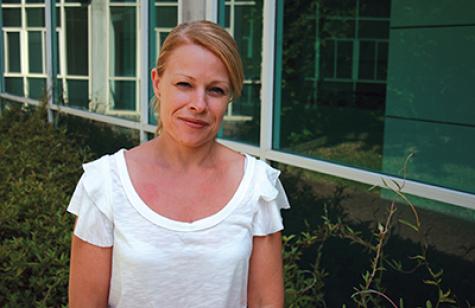When Fiona Feltrin fell pregnant with twins, her asthma treatment soon became a priority.
“Originally there was a lot of fear about the impacts that asthma medication had on babies,” Fiona said. “I used to worry about which treatments would be safe during my pregnancy.”
Fiona enrolled in the Managing Asthma in Pregnancy (MAP) study at the Hunter Medical Research Institute, conducted by Professor Peter Gibson of John Hunter Hospital and Kelly Steel.
Traditionally the symptoms of Fiona’s asthma were treated by her GP, but the MAP Study offered a more expansive analysis of both her asthma and her pregnancy.
“Participating in the study was so much more effective because every aspect of your asthma was analysed and it was a very powerful motivator to see where your health was sitting,” Fiona said.
“The study not only monitored my asthma during my pregnancy with the twins it motivated me to take better care of my asthma rather than simply treating the symptoms.”
The MAP Study monitored a range of aspects of asthma including Fiona’s lung function, blood, and sputum and nitrous oxide.
“This is a very important study, firstly for pregnant women with asthma, and secondly for people with asthma in general,” Professor Gibson said.
He said the study was prompted by the reluctance of many pregnant women to use treatments for asthma even though severe asthmatic episodes can be harmful to mother and child.
“For women with asthma who are pregnant, we now have a way that can significantly reduce asthma attacks, and this appears to benefit not only the mothers but also their babies.”
Not only did the MAP Study enable Fiona to breathe a little easier knowing her asthma was being watched closely, it also gave her the chance to update her knowledge on asthma and review her treatment.
“It allowed me to make good habits for my health again. I was reminded of things I should be incorporating back into my lifestyle.”
Fiona now has healthy twins and feels that the study has had a positive long term impact on her health.
“Nine months of monitoring really allowed me to watch what was happening with my asthma and engage in the process of trying to improve it,” she said. “Now I am more engaged with my health and what needs to be done.”
* * *
Further information is available from HMRI.



















__small.png)










